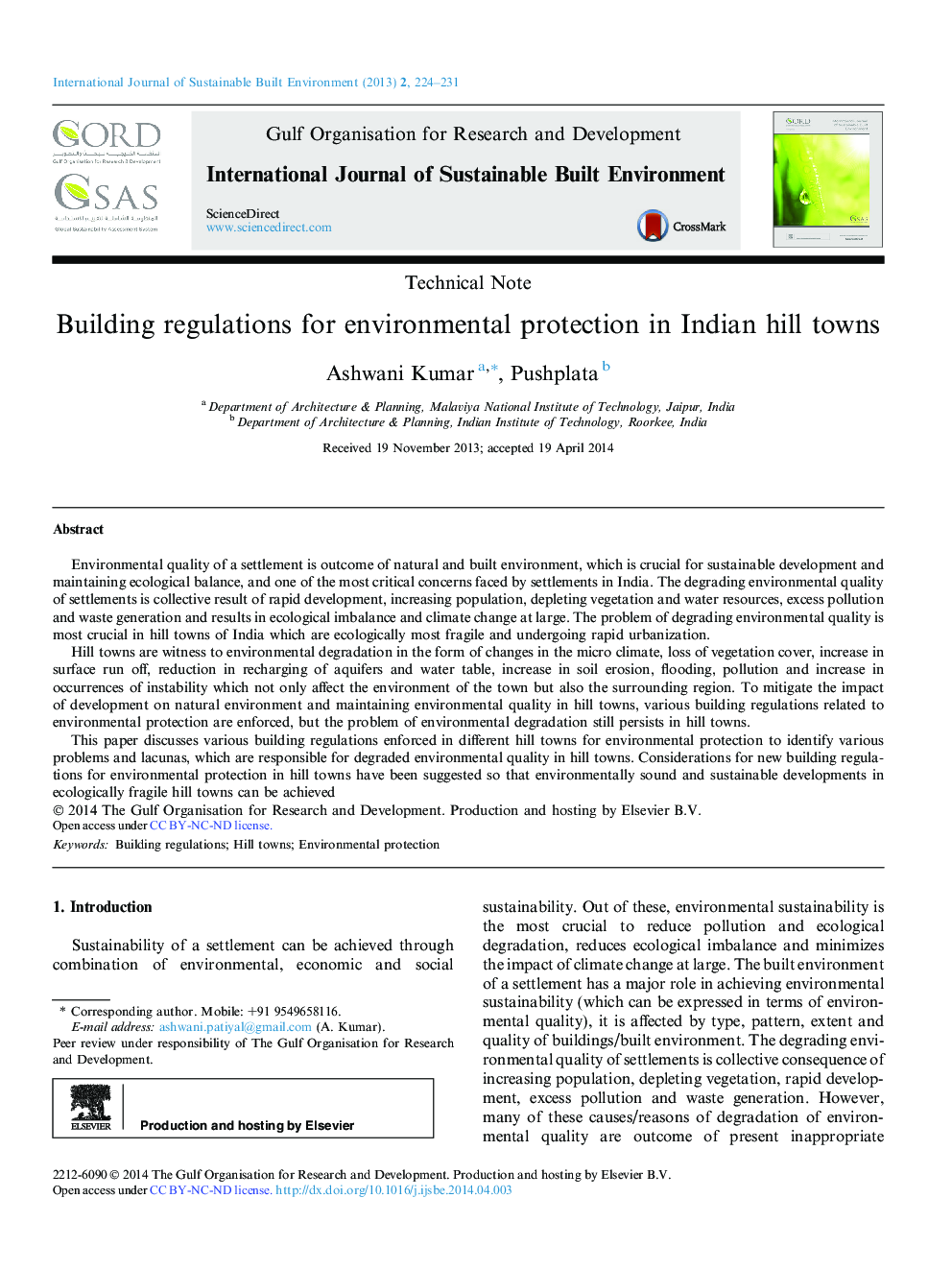| Article ID | Journal | Published Year | Pages | File Type |
|---|---|---|---|---|
| 214809 | International Journal of Sustainable Built Environment | 2013 | 8 Pages |
Environmental quality of a settlement is outcome of natural and built environment, which is crucial for sustainable development and maintaining ecological balance, and one of the most critical concerns faced by settlements in India. The degrading environmental quality of settlements is collective result of rapid development, increasing population, depleting vegetation and water resources, excess pollution and waste generation and results in ecological imbalance and climate change at large. The problem of degrading environmental quality is most crucial in hill towns of India which are ecologically most fragile and undergoing rapid urbanization.Hill towns are witness to environmental degradation in the form of changes in the micro climate, loss of vegetation cover, increase in surface run off, reduction in recharging of aquifers and water table, increase in soil erosion, flooding, pollution and increase in occurrences of instability which not only affect the environment of the town but also the surrounding region. To mitigate the impact of development on natural environment and maintaining environmental quality in hill towns, various building regulations related to environmental protection are enforced, but the problem of environmental degradation still persists in hill towns.This paper discusses various building regulations enforced in different hill towns for environmental protection to identify various problems and lacunas, which are responsible for degraded environmental quality in hill towns. Considerations for new building regulations for environmental protection in hill towns have been suggested so that environmentally sound and sustainable developments in ecologically fragile hill towns can be achieved
